Tag Archive for: Pigs/Hogs
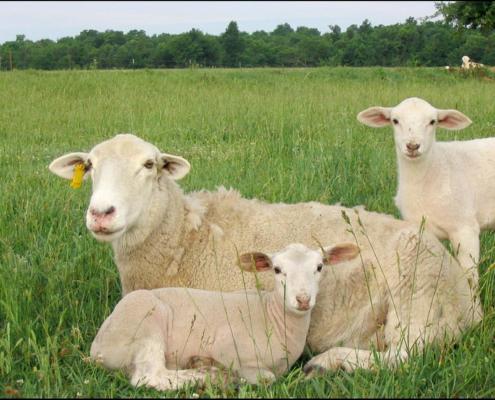 https://attra.ncat.org/wp-content/uploads/2022/04/sheep-2-scaled-1.jpg
1924
2560
NCAT IT
/wp-content/uploads/2022/06/ATTRAlogo_RGB-340x156.png
NCAT IT2022-07-26 14:15:562024-03-05 15:40:23No Livestock? Innovative Ways to Incorporate Them into Your Cropping System
https://attra.ncat.org/wp-content/uploads/2022/04/sheep-2-scaled-1.jpg
1924
2560
NCAT IT
/wp-content/uploads/2022/06/ATTRAlogo_RGB-340x156.png
NCAT IT2022-07-26 14:15:562024-03-05 15:40:23No Livestock? Innovative Ways to Incorporate Them into Your Cropping System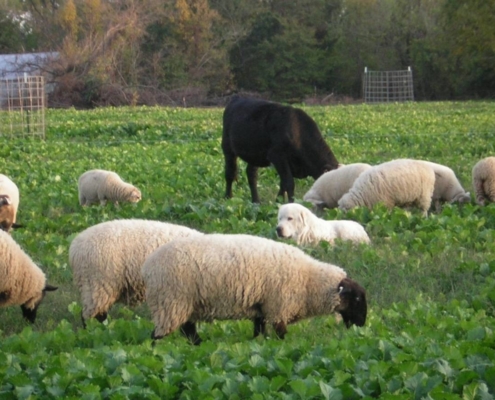 https://attra.ncat.org/wp-content/uploads/2022/04/multispecies-grazing-fall-turnips-pasture.jpg
880
1170
NCAT IT
/wp-content/uploads/2022/06/ATTRAlogo_RGB-340x156.png
NCAT IT2022-06-30 16:29:502024-02-26 14:58:51Integrating Livestock and Crops: Improving Soil, Solving Problems, Increasing Income
https://attra.ncat.org/wp-content/uploads/2022/04/multispecies-grazing-fall-turnips-pasture.jpg
880
1170
NCAT IT
/wp-content/uploads/2022/06/ATTRAlogo_RGB-340x156.png
NCAT IT2022-06-30 16:29:502024-02-26 14:58:51Integrating Livestock and Crops: Improving Soil, Solving Problems, Increasing Income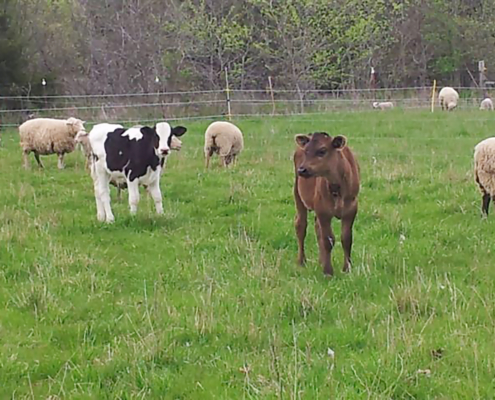 https://attra.ncat.org/wp-content/uploads/2022/04/catttle-and-sheep-grazing.jpg
1333
1778
NCAT IT
/wp-content/uploads/2022/06/ATTRAlogo_RGB-340x156.png
NCAT IT2022-06-29 16:10:242024-03-05 10:54:22Multispecies Grazing: A Primer on Diversity
https://attra.ncat.org/wp-content/uploads/2022/04/catttle-and-sheep-grazing.jpg
1333
1778
NCAT IT
/wp-content/uploads/2022/06/ATTRAlogo_RGB-340x156.png
NCAT IT2022-06-29 16:10:242024-03-05 10:54:22Multispecies Grazing: A Primer on Diversity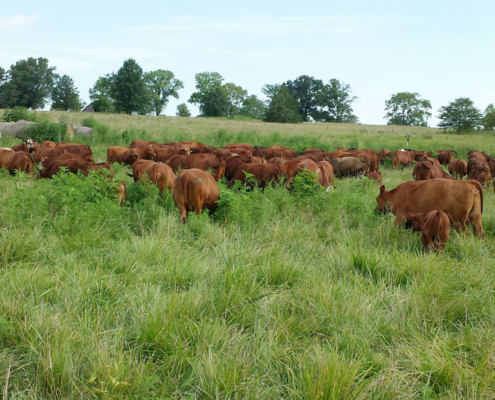 https://attra.ncat.org/wp-content/uploads/2021/03/Photo-1.jpg
1013
1800
NCAT IT
/wp-content/uploads/2022/06/ATTRAlogo_RGB-340x156.png
NCAT IT2022-06-27 12:10:142024-03-14 09:08:34Pasture, Rangeland, and Adaptive Grazing
https://attra.ncat.org/wp-content/uploads/2021/03/Photo-1.jpg
1013
1800
NCAT IT
/wp-content/uploads/2022/06/ATTRAlogo_RGB-340x156.png
NCAT IT2022-06-27 12:10:142024-03-14 09:08:34Pasture, Rangeland, and Adaptive Grazing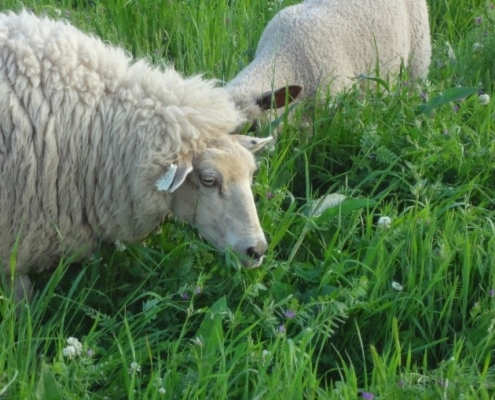
Advanced Grazing Webinar, Session 2 – Plants
Is it possible for weeds to provide equal or better nutrition than alfalfa? The second session of the National Center for Appropriate Technology’s (NCAT) four-part webinar series, Advanced Grazing for Regenerating Soils and Enhancing Animal Nutrition, addresses these questions by focusing on the plant side of the grazing equation.
Justin Morris and Lee Rinehart
Justin Morris and Lee Rinehart
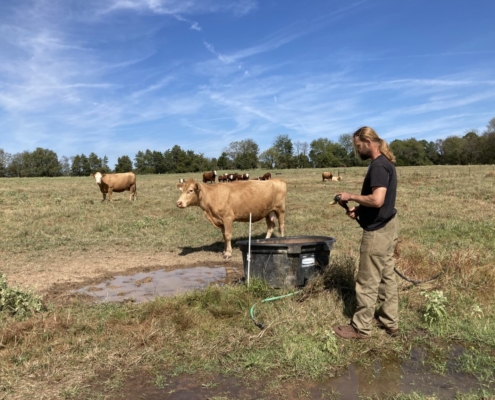
New Resources to Demystify Regenerative Grazing and Soil Health
The terms regenerative grazing and soil health have started to seem almost ubiquitous in the world of agriculture. This is heartening for me as a soil specialist with NCAT, where I consider it part of my job to help producers understand and take care of their soils, as it is key to their long-term success as farmers and ranchers.
Nina Prater
Nina Prater
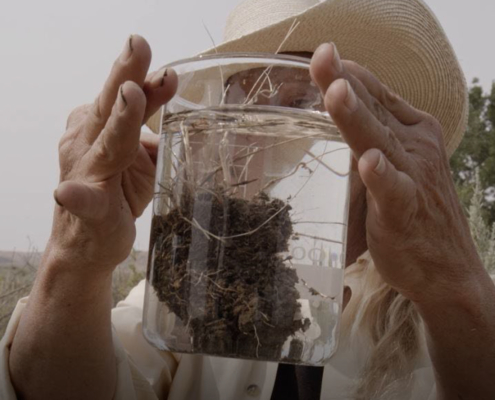
NCAT Webinar Series Addresses Advanced Grazing
Did you know that the most important livestock on your farm are the ones you never purchased and, in most cases, have rarely, if ever, seen? These livestock, along with plant roots, play an essential role in improving soil health, which is the foundation of any agricultural operation. But what is soil health and how does one go about improving it? The NCAT four-part webinar series Advanced Grazing for Regenerating Soils and Enhancing Animal Nutrition begins by addressing this question.
Justin Morris, NCAT Regenerative Grazing Specialist, and Lee Rinehart, NCAT Sustainable Agriculture Specialist
Justin Morris, NCAT Regenerative Grazing Specialist, and Lee Rinehart, NCAT Sustainable Agriculture Specialist

Reflections from a Shortgrass Prairie
Erik Tucker has been ranching in Southeast Colorado since his early 20s, and although he didn’t grow up on a ranch, he has long felt that the old way of ranching just wasn’t working. He likes to observe the sunshine, rain, and natural processes of the world that culminate in pastures and healthy cattle. He knows livestock didn’t always need so much handling, especially when bison freely roamed the area. He often thinks about those times and wonders if they can be recreated in their efficiency.
By Hernán Colmenero, Sustainable Food Consultant
By Hernán Colmenero, Sustainable Food Consultant
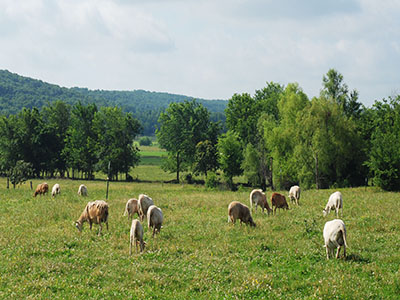
A Tale of Two Pastures: Pasture Response to Catastrophic Events
Did you know that pasture health and flying in an airplane are similar in some ways? If not, don’t worry; you’re not alone. A catastrophic event that happens in flight can resemble how a pasture responds following a catastrophe. Let us explain...
By Justin Morris and Linda Poole, NCAT Regenerative Grazing Specialists
By Justin Morris and Linda Poole, NCAT Regenerative Grazing Specialists
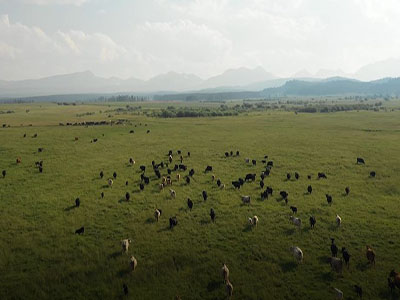
Grazing for Resilience: Bouncing Forward from Catastrophic Events
For many areas of the western United States and Canada, 2021 was one of the hottest and driest years in recorded history. With temperatures exceeding 110 degrees F and precipitation at one-third to one-half of what’s been the norm, these are unparalleled conditions that are catastrophic in their effect on the land, animals, and people. But what is to be done when nature dishes out severe weather events such as flooding, fire, or grasshoppers that eat every green leaf in sight? Is it possible to not just bounce back from such catastrophes but to bounce forward by rising to even greater resilience in the future? The answer is a resounding YES!
By Justin Morris and Linda Poole, Regenerative Grazing Specialists
Tag Archive for: Pigs/Hogs
 https://attra.ncat.org/wp-content/uploads/2022/04/sheep-2-scaled-1.jpg
1924
2560
NCAT IT
/wp-content/uploads/2022/06/ATTRAlogo_RGB-340x156.png
NCAT IT2022-07-26 14:15:562024-03-05 15:40:23No Livestock? Innovative Ways to Incorporate Them into Your Cropping System
https://attra.ncat.org/wp-content/uploads/2022/04/sheep-2-scaled-1.jpg
1924
2560
NCAT IT
/wp-content/uploads/2022/06/ATTRAlogo_RGB-340x156.png
NCAT IT2022-07-26 14:15:562024-03-05 15:40:23No Livestock? Innovative Ways to Incorporate Them into Your Cropping System https://attra.ncat.org/wp-content/uploads/2022/04/multispecies-grazing-fall-turnips-pasture.jpg
880
1170
NCAT IT
/wp-content/uploads/2022/06/ATTRAlogo_RGB-340x156.png
NCAT IT2022-06-30 16:29:502024-02-26 14:58:51Integrating Livestock and Crops: Improving Soil, Solving Problems, Increasing Income
https://attra.ncat.org/wp-content/uploads/2022/04/multispecies-grazing-fall-turnips-pasture.jpg
880
1170
NCAT IT
/wp-content/uploads/2022/06/ATTRAlogo_RGB-340x156.png
NCAT IT2022-06-30 16:29:502024-02-26 14:58:51Integrating Livestock and Crops: Improving Soil, Solving Problems, Increasing Income https://attra.ncat.org/wp-content/uploads/2022/04/catttle-and-sheep-grazing.jpg
1333
1778
NCAT IT
/wp-content/uploads/2022/06/ATTRAlogo_RGB-340x156.png
NCAT IT2022-06-29 16:10:242024-03-05 10:54:22Multispecies Grazing: A Primer on Diversity
https://attra.ncat.org/wp-content/uploads/2022/04/catttle-and-sheep-grazing.jpg
1333
1778
NCAT IT
/wp-content/uploads/2022/06/ATTRAlogo_RGB-340x156.png
NCAT IT2022-06-29 16:10:242024-03-05 10:54:22Multispecies Grazing: A Primer on Diversity https://attra.ncat.org/wp-content/uploads/2021/03/Photo-1.jpg
1013
1800
NCAT IT
/wp-content/uploads/2022/06/ATTRAlogo_RGB-340x156.png
NCAT IT2022-06-27 12:10:142024-03-14 09:08:34Pasture, Rangeland, and Adaptive Grazing
https://attra.ncat.org/wp-content/uploads/2021/03/Photo-1.jpg
1013
1800
NCAT IT
/wp-content/uploads/2022/06/ATTRAlogo_RGB-340x156.png
NCAT IT2022-06-27 12:10:142024-03-14 09:08:34Pasture, Rangeland, and Adaptive Grazing
Advanced Grazing Webinar, Session 2 – Plants
Is it possible for weeds to provide equal or better nutrition than alfalfa? The second session of the National Center for Appropriate Technology’s (NCAT) four-part webinar series, Advanced Grazing for Regenerating Soils and Enhancing Animal Nutrition, addresses these questions by focusing on the plant side of the grazing equation.
Justin Morris and Lee Rinehart
Justin Morris and Lee Rinehart

New Resources to Demystify Regenerative Grazing and Soil Health
The terms regenerative grazing and soil health have started to seem almost ubiquitous in the world of agriculture. This is heartening for me as a soil specialist with NCAT, where I consider it part of my job to help producers understand and take care of their soils, as it is key to their long-term success as farmers and ranchers.
Nina Prater
Nina Prater

NCAT Webinar Series Addresses Advanced Grazing
Did you know that the most important livestock on your farm are the ones you never purchased and, in most cases, have rarely, if ever, seen? These livestock, along with plant roots, play an essential role in improving soil health, which is the foundation of any agricultural operation. But what is soil health and how does one go about improving it? The NCAT four-part webinar series Advanced Grazing for Regenerating Soils and Enhancing Animal Nutrition begins by addressing this question.
Justin Morris, NCAT Regenerative Grazing Specialist, and Lee Rinehart, NCAT Sustainable Agriculture Specialist
Justin Morris, NCAT Regenerative Grazing Specialist, and Lee Rinehart, NCAT Sustainable Agriculture Specialist

Reflections from a Shortgrass Prairie
Erik Tucker has been ranching in Southeast Colorado since his early 20s, and although he didn’t grow up on a ranch, he has long felt that the old way of ranching just wasn’t working. He likes to observe the sunshine, rain, and natural processes of the world that culminate in pastures and healthy cattle. He knows livestock didn’t always need so much handling, especially when bison freely roamed the area. He often thinks about those times and wonders if they can be recreated in their efficiency.
By Hernán Colmenero, Sustainable Food Consultant
By Hernán Colmenero, Sustainable Food Consultant

A Tale of Two Pastures: Pasture Response to Catastrophic Events
Did you know that pasture health and flying in an airplane are similar in some ways? If not, don’t worry; you’re not alone. A catastrophic event that happens in flight can resemble how a pasture responds following a catastrophe. Let us explain...
By Justin Morris and Linda Poole, NCAT Regenerative Grazing Specialists
By Justin Morris and Linda Poole, NCAT Regenerative Grazing Specialists

Grazing for Resilience: Bouncing Forward from Catastrophic Events
For many areas of the western United States and Canada, 2021 was one of the hottest and driest years in recorded history. With temperatures exceeding 110 degrees F and precipitation at one-third to one-half of what’s been the norm, these are unparalleled conditions that are catastrophic in their effect on the land, animals, and people. But what is to be done when nature dishes out severe weather events such as flooding, fire, or grasshoppers that eat every green leaf in sight? Is it possible to not just bounce back from such catastrophes but to bounce forward by rising to even greater resilience in the future? The answer is a resounding YES!
By Justin Morris and Linda Poole, Regenerative Grazing Specialists
